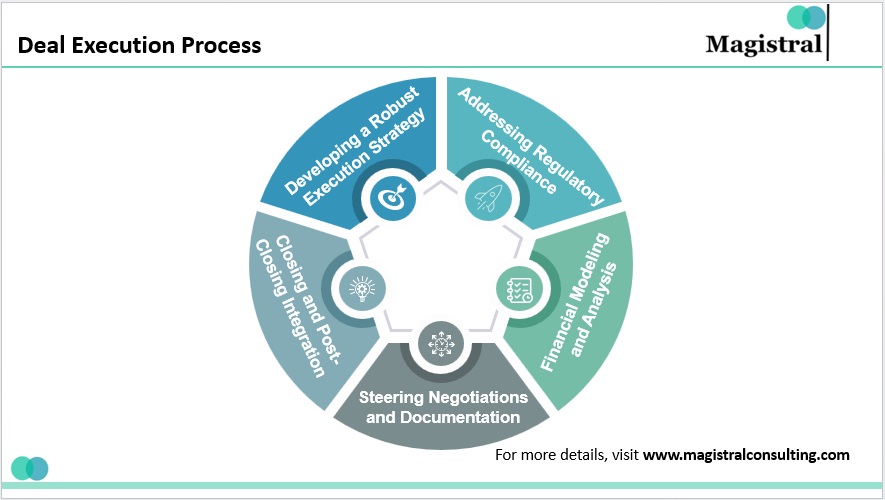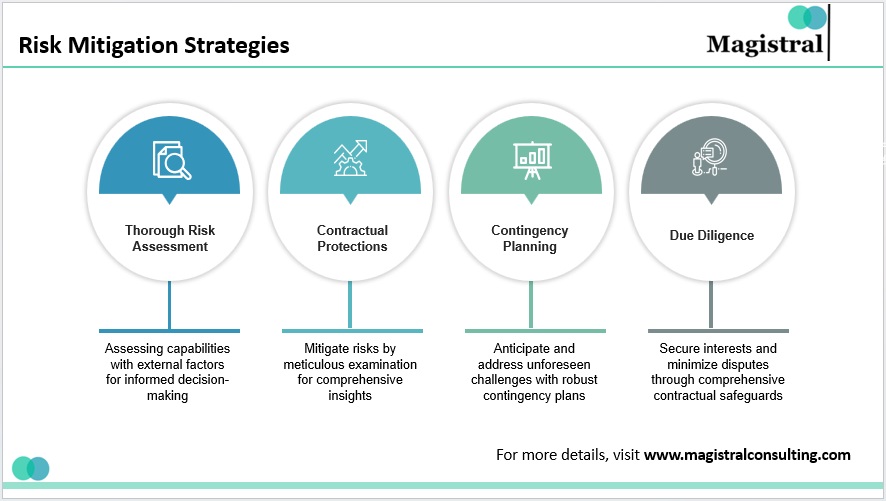The implementation of the Deal Execution for Private Equity is a complex process. A high emphasis is required on strategy and knowledge of the markets. With the transforming global economy, the scene for private equity market has changed extensively. The increase in funds and the appetite for developed and developing markets has increased immensely, making deal execution strategies one key area of focus. This article discusses the existing trends, opportunities and difficulties around private equity deal making, with particular attention to the reality perspective across a range of countries and markets.
Private Equity services Deal execution assists since they provide the ancillary documents which is required during the preparation of the deal and negotiation stages.
Transaction Execution or Deal Execution for Private equity involves assessing the management, the industry, the history, the financials and forecasts, and conducting valuation analysis. After the sign-off by the investment committee to acquire the targeted company, the deal professionals submit an offer to the seller.
The Changing Landscape of Private Equity Deal Execution
Private equity deal making process consists of finding, structuring, negotiating, and financing of the investment into privately held companies primarily to enhance performance, expand activities or prepare them for exit. Various factors have influenced this market in the recent past, including:

The Changing Landscape of Private Equity Deal Execution
Globalization
Investors start to look for different markets outside the developed markets, thus private equity firms are also shifting their attention beyond developed regions like Asia pacific, Africa and South America.
Technical Development
It became possible because of new technologies that enabled data analytics, AI and machine learning for firms, allowing them to better make various decisions including during the deal makings.
Availability of capital
In private equity industry, capital deals in recent years have exceeded record figures, leading to fierce competition for strong assets. As a result, such turn of events has increased the volume of deal execution and the prices of valuation as well.
ESG Considerations
As a collateral issue there is an increased attention on sustainable and responsible investing, making it critical for PE firms to embed ESG factors into their deal execution processes.
Global Private Equity Deal Execution Trends and Data Insights
The global private equity ecosystem is shaped by a multitude of economic, political as well as financial dynamics. The following sections will discuss some of the peculiar trends in deal making in various regions.

Deal Execution for Private Equity -Trends and Data Insights
North America: Dominance and Diversification
With strong economic mechanics, robust technological development, and more investment offers, North America continues to be the biggest Private Equity market auctions. But there is increased competition, and firms have started broadening their bases to include growth equity, sector-specific funds, distress purchases among others.
Volume of Private Equity Transactions
The trend appears to be steady; North America, as always, with a pickup in activity in the healthcare, technology, and renewable energy markets. The pattern of digital change and healthcare development has created great deal-making activity in this region.
Deal Volume
The number of private equity deals in North America has increased by approximately 6% since 2023.
Deal Value
The total value of private equity deals in North America is projected to reach $594 billion in 2024, with an average deal size of $134.80 million.
Europe: Stage of the Market and Growth Considerations
Buyouts have traditionally dominated private equity deals in Europe in well-entrenched markets and regulations. However, the deal flows have increasingly been targeted on investments that foster technological innovations and sustainability for new sources of growth.
Private Equity Deal Volume
Europe covered about 30% of the global private equity space in 2023. Most active sectors were in fintech, renewable energy and consumer products.
Data Trend
The average deal size in Europe’s middle market at the end of 2023 stands at around €51 million, or about $55 million. Growth in this segment is keeping pace with an increase in the number of mid-market deals.
Asia-Pacific Takes Lead on Startup Deals
The Asia-Pacific region is now leading new deal activity, driven by a very high volume of private equity buyouts. India, China, Japan are some markets.
Private Equity Deal Volume
Private equity deal execution volume in APAC in 2023 was more than 15% of the total global deals.
Data Trend (2022)
The deal volume in APAC in 2022 was much higher than that in 2021. It was about 8% higher. However, the average deal size was more or less $150 million, which reflects a trend toward smaller deals because of economic uncertainties and tighter credit conditions.
Emerging Business Models
The region witnessed an increase in new venture capital deals and early-stage financing rounds, especially by tech companies, that strengthen the competitive edge of APAC.
Latin America: Challenging but The Opportunities Mining Is Attractive
Latin America is a relatively underdeveloped market for private equity, but their emerging markets are shaping up to be ideal for growth due to their growth potential, wealth of resources, and expanded middle class.
Private Equity Deal Volume 2023
Latin America accounted for about 5% of the global private equity deal volume. That region is increasingly attracting investments, particularly in sectors like agribusiness, fintech, and natural resources.
Data Trend
Despite political instability and currency exchange rate changes, the private equity market in Latin America proved resilient as it grew by about 4% in 2023.
Key drivers of success in Deal Execution
Many factors influence the success of private equity deal execution across markets:
Data and Technology Integration
More and more private equity firms are employing data analytics and AI in their decision-making throughout the entire deal lifecycle. These analyses of large volumes of data will help in unearthing hidden opportunities, in forecasting market trends, and in optimizing deal structures.
Example: Deal execution tools powered by AI are helping firms make faster, more accurate judgments about potential investments, closing deals in less time.
ESG considerations
Companies have found it beneficial to integrate ESG considerations into their private equity sourcing and deal execution strategies. The high ESG performance of companies meets stakeholder expectations, reduces risks, and enables long-term value realization. By the year 2023, it was anticipated that over 50 percent of private equity partnerships had incorporated ESGs in the assessment-deal process with most focus remaining on green technology and renewable energy.
Example: Probably anything in excess of 50 percent of private equity partnerships would have criteria already assessed regarding ESG considerations, with renewable energy and green technology occupying critical central positions across 2023.
International Transactions
Execution of supply international transactions among organizations is becoming increasingly commonplace. This situation is mostly characterized by dealing with several regulations, cultural variations, and different financial structures existing in every particular count There will be an incentive for the above when there is access to new markets or diversification of portfolios.
Example: According to Global Data, the North American companies completed more than 35 percent of cross-border transactions in 2023 while Asia-Pacific and Europe emerged as outbound investment destinations.
Magistral’s Services for Deal Execution for Private Equity
Magistral provides a full cycle work on private equity deals. We support the clients at all stages, delivering value and preventing risks. Professional services connected with deal execution comprise the following:
Deal Sourcing & Target Identification
We use our market knowledge and networks to identify and evaluate high-potential acquisition targets. This ensures alignment with your strategic investment goals.
Due Diligence
This process points to the major risks, opportunities, and shortcomings where the client firm needs an improvement
Transaction Structuring
We structure tax-efficient transactions that meet financing needs, distribute risk effectively, and align with your long-term strategic goals.
Valuation and Pricing Advice
We guide the pricing strategy through methodologies like DCF, Comparative Company Analysis, and Precedent Transaction Analysis. This ensures that value is captured in the deal.
Risk Management & Mitigation
We recognize potential risks, financial, operational, and legal and develop custom-made policies. This helps certify a smooth transaction and reducing post-deal surprises.
Funding & Capital Raise
We involve our teams with the investors and lenders. And come up with the suitable composition of the debt and equity financing to close the deal.
Post-Deal Integration
We help in the post-acquisition integration in terms of financial systems, operations as well as culture. This helps and leverages synergies and eases off the transition of the target into the acquiring company’s framework.
Exit Strategy Development
We work jointly with the client. And define the most optimal exit strategy development which can take form of a sale or an IPO. And even recapitalization as and when the situation calls for it – this ensures the maximization of ROI.
About Magistral Consulting
Magistral Consulting has helped multiple funds and companies in outsourcing operations activities. It has service offerings for Private Equity, Venture Capital, Family Offices, Investment Banks, Asset Managers, Hedge Funds, Financial Consultants, Real Estate, REITs, RE funds, Corporates, and Portfolio companies. Its functional expertise is around Deal origination, Deal Execution, Due Diligence, Financial Modelling, Portfolio Management, and Equity Research
For setting up an appointment with a Magistral representative visit www.magistralconsulting.com/contact
About the Author
The article is Authored by the Marketing Department of Magistral Consulting. For any business inquiries, you could reach out to prabhash.choudhary@magistralconsulting.com
What are the effects of ESG on the sourcing of private equity?
Private equity funds invest into sustainable energy and eco-friendly tech with a good eye towards ESG considerations fitting within strategy.
How does a cross-border deal execution fit the private equity narrative?
With companies seeking new geographical areas and with the need of diversification, cross border transactions are becoming more prevalent.
How has the availability of capital impacted private equity deals?
This, combined with increased capital availability, has heightened competition for quality assets-their deal volumes and valuations rise in consequence.
How does globalization affect private equity deal execution?
Privatization companies have been thrown into Asia-Pacific, African, and South America amid globalizations.

